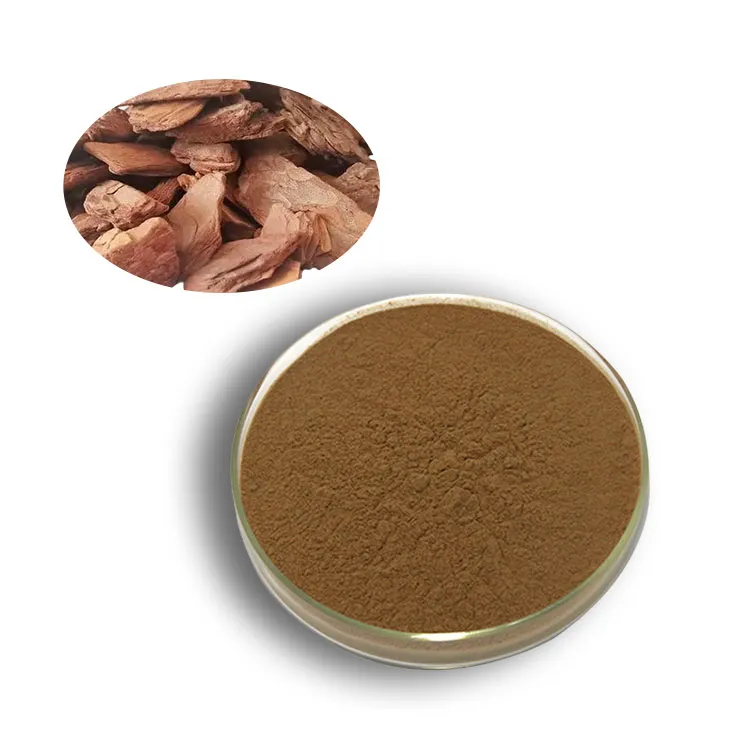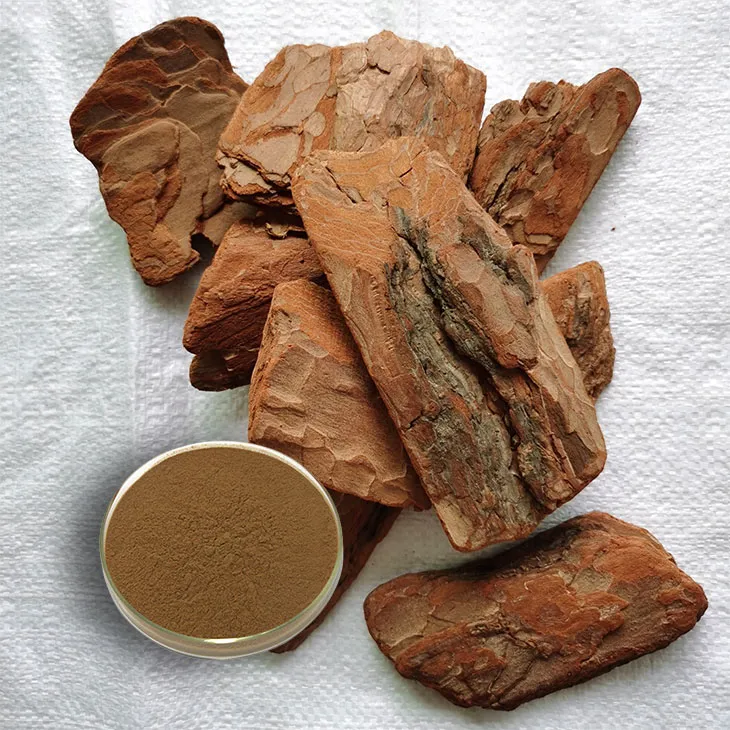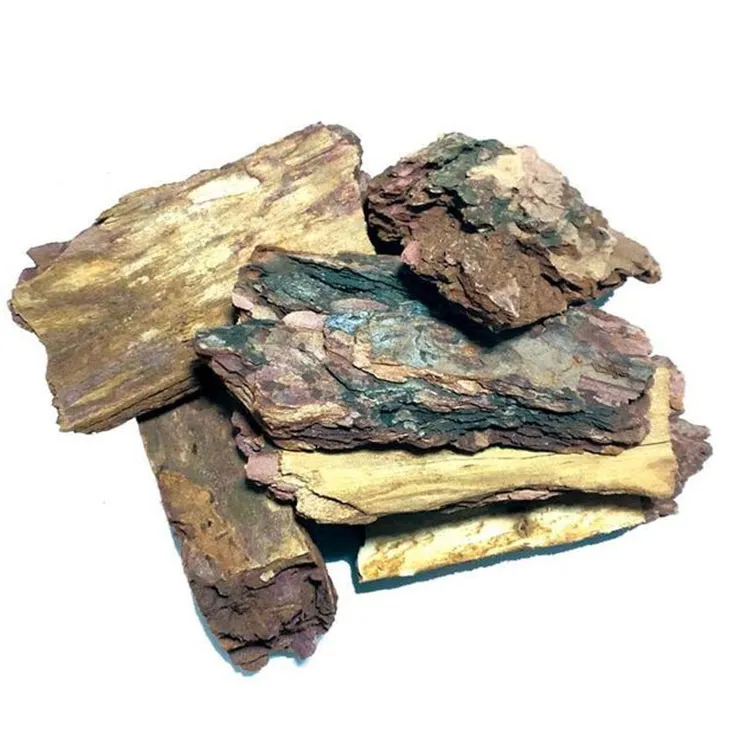- 0086-571-85302990
- sales@greenskybio.com
Is pine bark extract powder beneficial for diabetes? Are these all safe and suitable for diabetic patients?
2024-11-11

1. Introduction
Diabetes has become a global health concern, with an increasing number of people being diagnosed each year. As a result, there is a growing interest in natural remedies and supplements that may help manage the condition. Pine bark Extract Powder is one such supplement that has been the subject of research in relation to diabetes. This article aims to comprehensively analyze whether Pine bark Extract Powder is beneficial for diabetes and whether it is safe and suitable for diabetic patients.

2. What is Pine bark Extract Powder?
Pine bark extract is derived from the bark of certain pine trees. It contains a variety of bioactive compounds, such as proanthocyanidins, which are known for their strong antioxidant properties. These antioxidants play a crucial role in protecting the body's cells from damage caused by free radicals. The powder form of pine bark extract is often used in dietary supplements due to its concentrated nature and ease of consumption.

3. Antioxidant Properties of Pine Bark Extract Powder
3.1. How Antioxidants Work
Antioxidants, including those found in pine bark extract powder, work by neutralizing free radicals. Free radicals are unstable molecules that can cause oxidative stress in the body. Oxidative stress has been linked to a variety of health problems, including diabetes. By reducing oxidative stress, antioxidants may help improve overall health and potentially have an impact on diabetes management.
3.2. Impact on Inflammation
Chronic inflammation is often associated with diabetes. Pine bark extract powder's antioxidant properties may also help reduce inflammation in the body. This is important because inflammation can interfere with the normal function of insulin, the hormone responsible for regulating blood sugar levels. By reducing inflammation, pine bark extract powder may indirectly contribute to better blood sugar control.

4. Impact on Blood Sugar Regulation
4.1. Insulin Sensitivity
Some studies suggest that pine bark extract powder may improve insulin sensitivity. Insulin sensitivity refers to how effectively the body's cells respond to insulin. When insulin sensitivity is low, the body needs to produce more insulin to regulate blood sugar levels, which can put a strain on the pancreas. By improving insulin sensitivity, pine bark extract powder may help the body use insulin more efficiently, leading to better blood sugar regulation.
4.2. Glucose Uptake
There is also evidence to suggest that pine bark extract powder may enhance glucose uptake in cells. Glucose uptake is the process by which cells absorb glucose from the bloodstream. If this process is enhanced, it can help lower blood sugar levels. However, more research is needed to fully understand the mechanisms behind this effect and its significance in diabetes management.
5. Potential Side - Effects of Pine Bark Extract Powder
While pine bark extract powder may have potential benefits for diabetes, it is also important to consider its potential side - effects.
5.1. Gastrointestinal Disturbances
Some people may experience gastrointestinal disturbances such as nausea, diarrhea, or stomach cramps when taking pine bark extract powder. These side - effects are usually mild and may subside over time. However, if they persist or are severe, it is advisable to stop taking the supplement and consult a healthcare provider.
5.2. Allergic Reactions
Allergic reactions to pine bark extract powder are also possible, especially in individuals who are allergic to pine trees or related products. Symptoms of an allergic reaction may include rash, itching, swelling, or difficulty breathing. If any of these symptoms occur, immediate medical attention should be sought.
5.3. Interaction with Medications
Pine bark extract powder may interact with certain medications. For example, it may potentiate the effects of blood - thinning medications, increasing the risk of bleeding. Diabetic patients who are taking other medications should consult their healthcare provider before starting pine bark extract powder to ensure there are no potential interactions.
6. Safety and Suitability for Diabetic Patients
Overall, the safety and suitability of pine bark extract powder for diabetic patients are complex issues that depend on several factors.
6.1. Individual Health Status
Diabetic patients with pre - existing health conditions such as kidney disease or liver problems may need to be more cautious when considering pine bark extract powder. These conditions may affect how the body processes the supplement, and there may be a higher risk of side - effects. It is essential that these patients consult their healthcare provider before starting any new supplement.
6.2. Diet and Lifestyle
Diabetic patients' diet and lifestyle also play a role in determining the safety and suitability of pine bark extract powder. For example, a diet high in sugar and fat may counteract the potential benefits of the supplement. Similarly, a sedentary lifestyle may limit the effectiveness of pine bark extract powder in managing diabetes. Therefore, it is important for diabetic patients to maintain a healthy diet and an active lifestyle while considering the use of this supplement.
6.3. Quality and Purity of the Supplement
The quality and purity of pine bark extract powder supplements can vary widely. Low - quality supplements may contain contaminants or inaccurate dosages, which can pose a risk to diabetic patients. It is advisable to choose a reputable brand and look for products that have been tested for quality and purity.
7. Conclusion
In conclusion, pine bark extract powder shows potential benefits for diabetes in terms of its antioxidant properties, impact on blood sugar regulation, and possible reduction of inflammation. However, it also has potential side - effects and may not be suitable for all diabetic patients. Diabetic patients should consult their healthcare provider before starting pine bark extract powder, especially if they have other health conditions or are taking medications. Additionally, choosing a high - quality supplement is crucial to ensure safety and effectiveness. More research is needed to fully understand the long - term effects of pine bark extract powder on diabetes management and to develop more targeted and effective treatment strategies using this natural supplement.
FAQ:
What is pine bark extract powder?
Pine bark extract powder is a supplement made from the bark of pine trees. It contains various bioactive compounds, such as proanthocyanidins, which are known for their antioxidant properties.
How does pine bark extract powder potentially benefit diabetes?
The antioxidant properties of pine bark extract powder may help reduce oxidative stress in the body. Oxidative stress is often increased in diabetic patients. Also, some studies suggest it might play a role in improving blood vessel function, which could indirectly impact blood sugar regulation. However, more research is needed to fully understand these potential benefits.
Are there any known side - effects of pine bark extract powder?
Some people may experience mild side - effects such as gastrointestinal discomfort, including nausea, diarrhea or stomach upset. In rare cases, allergic reactions may occur, especially in those who are allergic to pine products. But overall, when taken in moderation, it is generally considered well - tolerated.
Can pine bark extract powder replace diabetes medications?
No. Pine bark extract powder should not be used as a replacement for diabetes medications prescribed by a doctor. While it may have some potential benefits, it has not been proven to be a sole treatment for diabetes. Diabetic patients should always follow their doctor's advice regarding their treatment plan.
How should diabetic patients take pine bark extract powder?
If a diabetic patient decides to take pine bark extract powder, they should first consult their doctor. The doctor can provide guidance on the appropriate dosage based on the patient's overall health status. It is usually recommended to start with a low dose and gradually increase if no adverse effects are observed.
Related literature
- The Role of Antioxidants in Diabetes Management"
- "Pine Bark Extract: Potential Health Benefits and Applications"
- "Impact of Natural Supplements on Blood Sugar Regulation in Diabetic Patients"
- ▶ Hesperidin
- ▶ citrus bioflavonoids
- ▶ plant extract
- ▶ lycopene
- ▶ Diosmin
- ▶ Grape seed extract
- ▶ Sea buckthorn Juice Powder
- ▶ Beetroot powder
- ▶ Hops Extract
- ▶ Artichoke Extract
- ▶ Reishi mushroom extract
- ▶ Astaxanthin
- ▶ Green Tea Extract
- ▶ Curcumin Extract
- ▶ Horse Chestnut Extract
- ▶ Other Problems
- ▶ Boswellia Serrata Extract
- ▶ Resveratrol Extract
- ▶ Marigold Extract
- ▶ Grape Leaf Extract
- ▶ blog3
-
High purity olive leaf extract
2024-11-11
-
Lavender oil extraction method
2024-11-11
-
100% organic virgin sea buckthorn fruit oil
2024-11-11
-
Lotus leaf extract powder factory in China
2024-11-11
-
China aged garlic extract supplier
2024-11-11
-
Deer antler extract powder manufacturer
2024-11-11
-
Saw palmetto extract vs whole herb
2024-11-11
-
Maca Extract
2024-11-11
-
Aguaje Extract
2024-11-11
-
Beetroot Powder
2024-11-11
-
Motherwort Extract
2024-11-11
-
Bamboo Leaf extract
2024-11-11
-
Maitake Mushroom Extract
2024-11-11
-
Longan Extract
2024-11-11
-
Propolis Extract Powder
2024-11-11
-
Peppermint Oil
2024-11-11
-
Kelp Extract Powder
2024-11-11





















